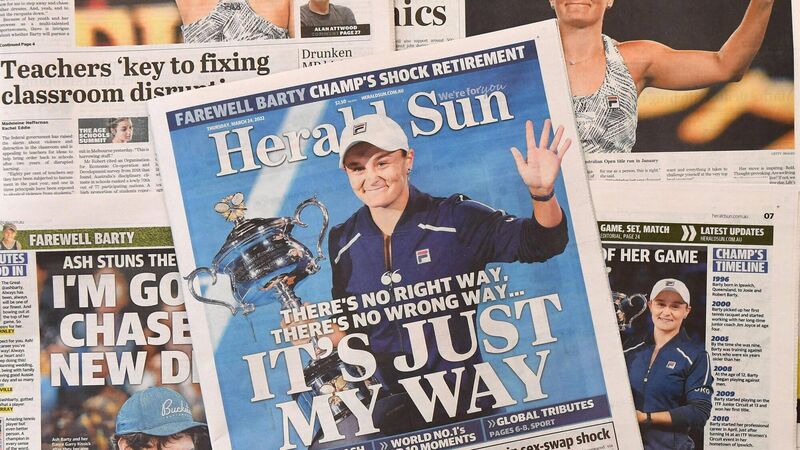Paul Rouse: Early retirement should be applauded not questioned

The front pages of papers in Melbourne carries the news of the shock retirement of world number one ranked tennis player, Australia's Ashleigh Barty. Photo by William West/AFP via Getty Images)
Should someone retire once they reach the top of their sport?
This is a question asked in the aftermath of the decision of the best female tennis player in the world, Ashleigh Barty, to retire at 25.









